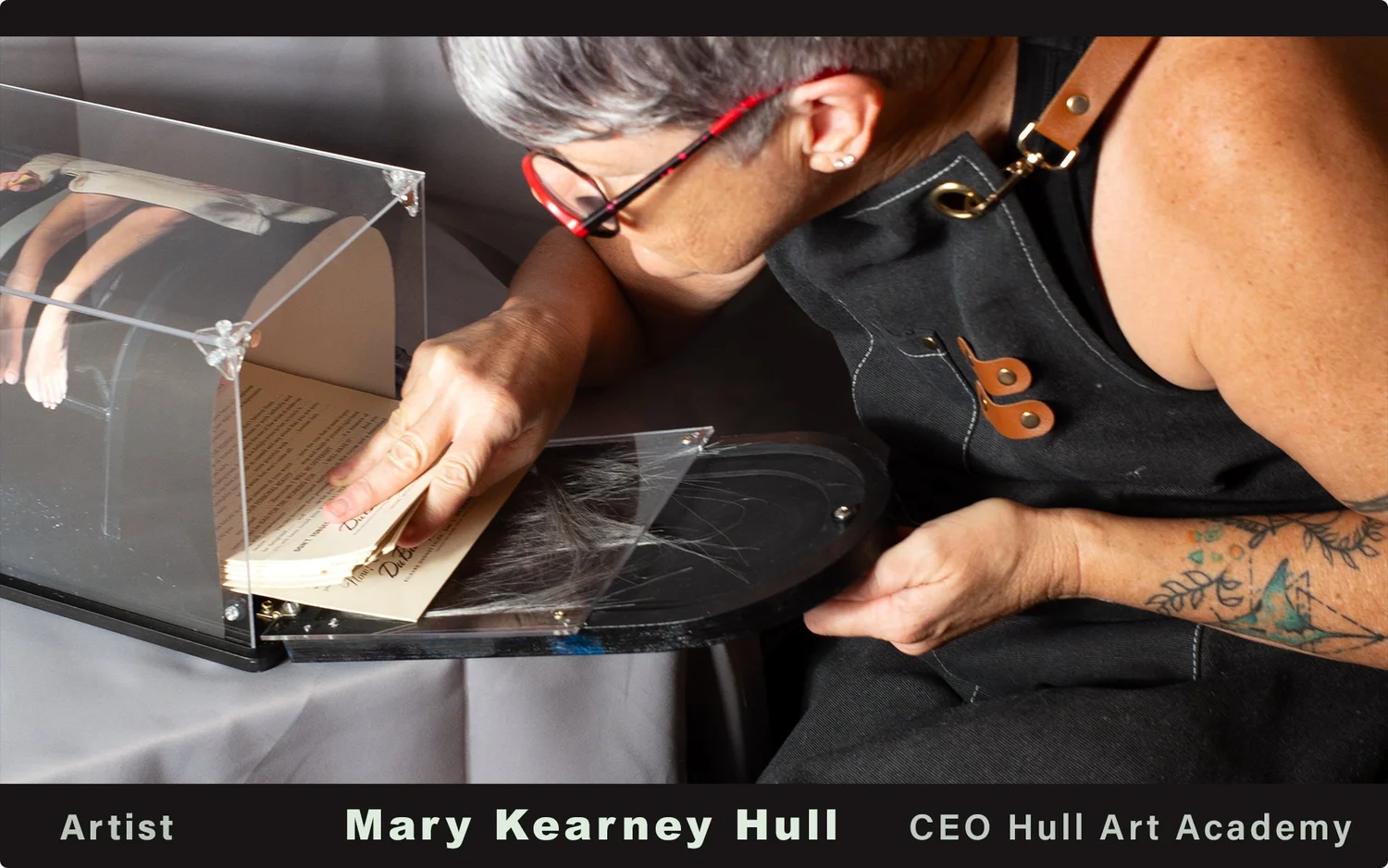Mary Kearney Hull
The sexualization of the entire female body in childhood and the transformative processes of the adult are two pivotal themes in Mary Kearney Hull’s work. Hull renders the female form both psychosocial and physiological through artistic explorations. Her drawings and paintings explore traditional and nontraditional themes of cultural and political identity in both herself and women she encounters in her daily life. Her figures are painted through a “female (yet adolescent) gaze” where the viewer is welcomed in this very personal space. Often met with an ambiguous uncertainty, we are questioning these narratives while relating them to cultural pasts within ourselves and our worlds histories.
In the past, Hull began her journey by exploring sculptural and performative works while using her body as an expressive vehicle in public spaces. A former art student of The School of the Art Institute of Chicago, she was interested in how women might have been seen from the gaze of others in her community. These works of art were often temporary and site specific.
Hull feels that identity is elusive and ever changing in a physical and physiological realm. Hull started investigating the element of aging and the personal and cultural transformations of “women-ness”. Like her performative works, these explorations were of her own identity but with a new experience of transforming out of a sexualized form one that is ignored and disposable as women age.
Recently, Hull has been exploring youthful yet eerie uncertainties met with the beginning of girlhood to womanhood. Her models are often still acting in a childlike mindset while being adult–like in body and mind. These moments in time capture a look into the girlhood process as one that is undervalued and abused.
Over time, bodies change and adapt within our cultural surroundings. As we look at Hull’s work we begin to question these cultural stigmas and agendas that women still face today while also begging the question of “what has really changed?” Once we process these tremendously private experiences we can later understand their indifferences.

